WINSLOW — The past was fully present Saturday as dozens came out for historical re-enactments and demonstrations at the annual Fort Halifax Days celebration.
On a muggy and overcast afternoon that at one point gave way to rain, multiple groups provided a source of living history, ranging from musket firings to demonstrations of what soldiers and scouting groups would have eaten and worn, musical entertainment and a life-size tepee overlooking the Kennebec River.
Rick Pierce, dressed as Capt. James Howard, of Old Fort Western, said his group was doing a number of re-enactment activities throughout the day. Pierce said to kick off the day, the group did a drill in the morning and raised the king’s colors. Later, he said, they would do a cannon demonstration, as well as a series of children’s’ activities in which they would learn how to hold wooden muskets properly and how to do marching drills.
Pierce’s group was from Old Fort Western in Augusta. Fort Western, as it was called in the 18th century, was directly involved with Fort Halifax, as both were British colonial outposts in the mid-1700s. Fort Halifax was built in 1754 at the start of the French and Indian War to protect the upper Kennebec River valley from potential attacks. After the war ended, the fort fell into disrepair, leaving only the blockhouse, which was nearly lost in the Great Flood of 1987. The logs were recovered later and the fort was rebuilt in 1988.
At the other end of the park, separate from Pierce’s group and the stage, was the Fletcher Scouting Company, a Thomaston re-enactment group, whose members were demonstrating the kind of things a scouting group would eat and what their rations looked like. Mark Rohman, president of the organization, said the goal was to engage the public and concentrate on education. Rohman, standing in his green regalia next to a fire where they were cooking a type of soup scouts might eat, said this was the first year they had presented in Winslow.
“We’ve been around since 2012,” he said.
Next to Rohman was Mark Dekker, a Fletcher Scouting Company member. Dekker said much of Maine was a battleground area during the time the forts were active. Part of their display was a laminated poster reproduction of a declaration of war from the governor of Massachusetts at the time against Native Americans in the region.
“It was a war of genocide,” said Dekker, who also has authored a book called “French & Indian Wars in Maine,” which is about the history of struggle among the British, French and Native Americans in early American history.
“Things were really brutal,” he said.
But though the history may be grisly, it served as an opportunity to learn. Dekker said there had been a nice turnout as of early Saturday afternoon, and that the event offered things and demonstrations that would be engaging for everyone.
Near where the scouts had set up in the park was another demonstration, the hardest one to miss: the musket demonstration. As Terry Briggs, a member of the Ancient Ones, loaded gunpowder into a musket in order to fire, the Lavallee family, of Winslow, crowded around for a history lesson. After the musket’s deafening roar, Patrick Lavallee, his son Trevor and daughters Reagan and Maya headed toward the remaining displays. Patrick Lavallee said this was the first time he had taken his children to the event, and he said they certainly would come back next year. All of the children said they had learned a lot Saturday, and their father said it been informative.
Reagan, after just hearing the musket fire, said Briggs had taught them a person using a musket only had one shot. Her brother Trevor said they learned how gunpowder was used.
“That was amazing,” she said of the musket shot.
Maya, Reagan’s twin sister, said they also had learned how guns came to the United States. Initially, Native Americans were predominantly bow hunters. However, the English introduced guns to the Native Americans, and over time muskets became more commonplace. This eventually caused the end of bow hunting, as over time generations lost the muscles needed to hunt by bow.
“By two generations, there were no more bows,” she said.
Fort Halifax Days started as a means to raise money for renovation of the park the fort is a part of. In 2014, the town won a $95,000 grant for the project and has completed much of the work so far. Some renovation occurred last fall, including an upgraded parking lot, walkways from the parking lot to the picnic huts that are wheelchair-accessible and a memorial stone and pavers at the front of the park.
Colin Ellis — 861-9253
cellis@centralmaine.com
Twitter: @colinoellis
Send questions/comments to the editors.


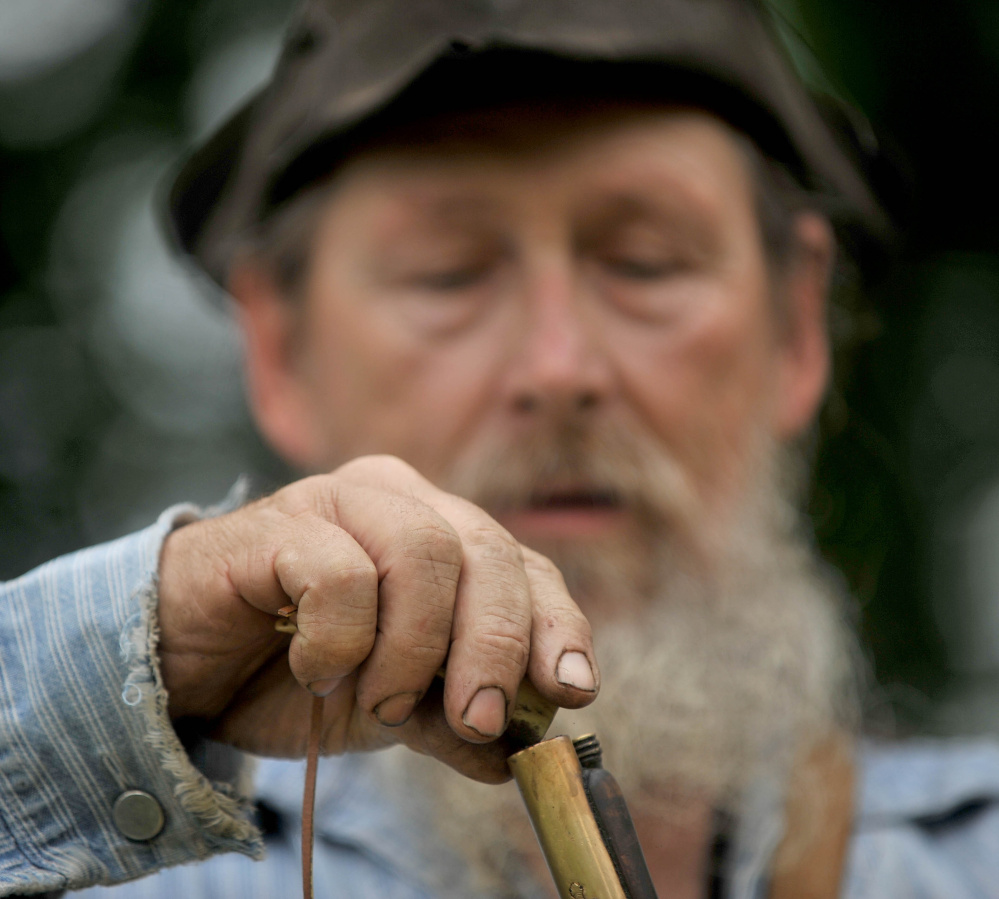
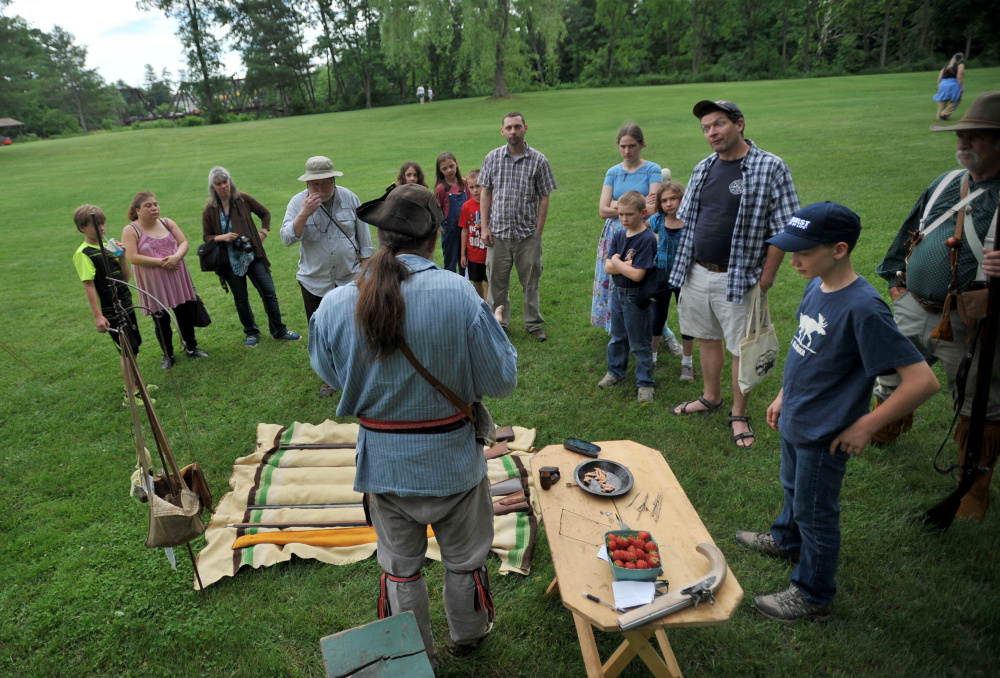
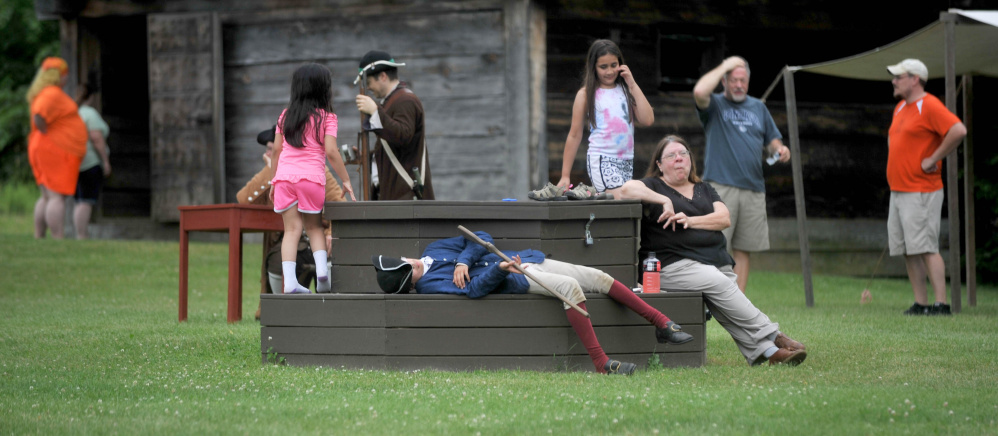
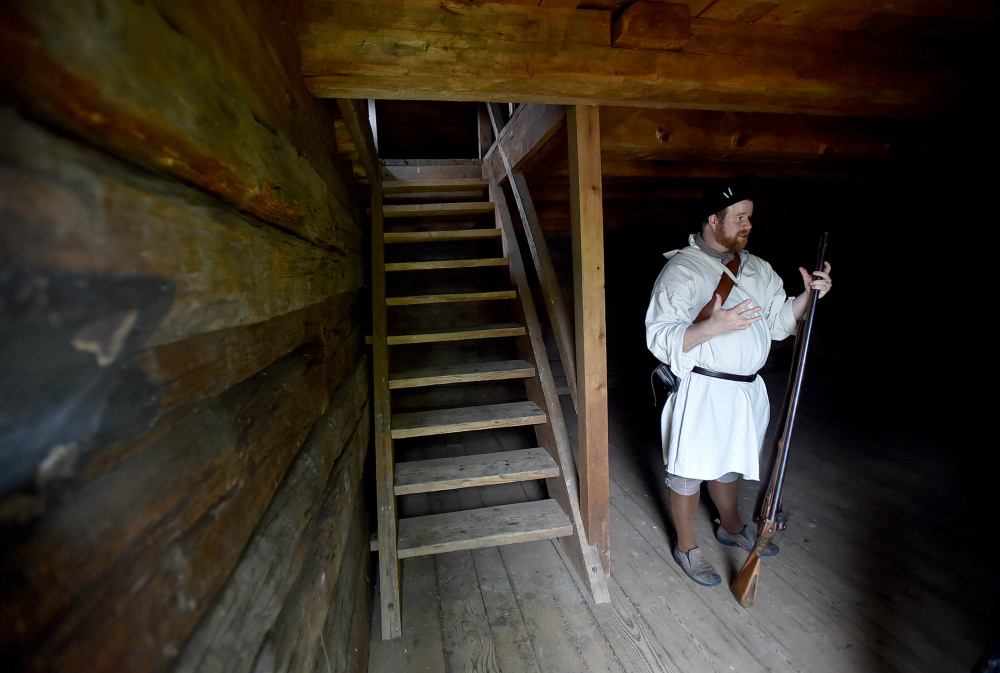
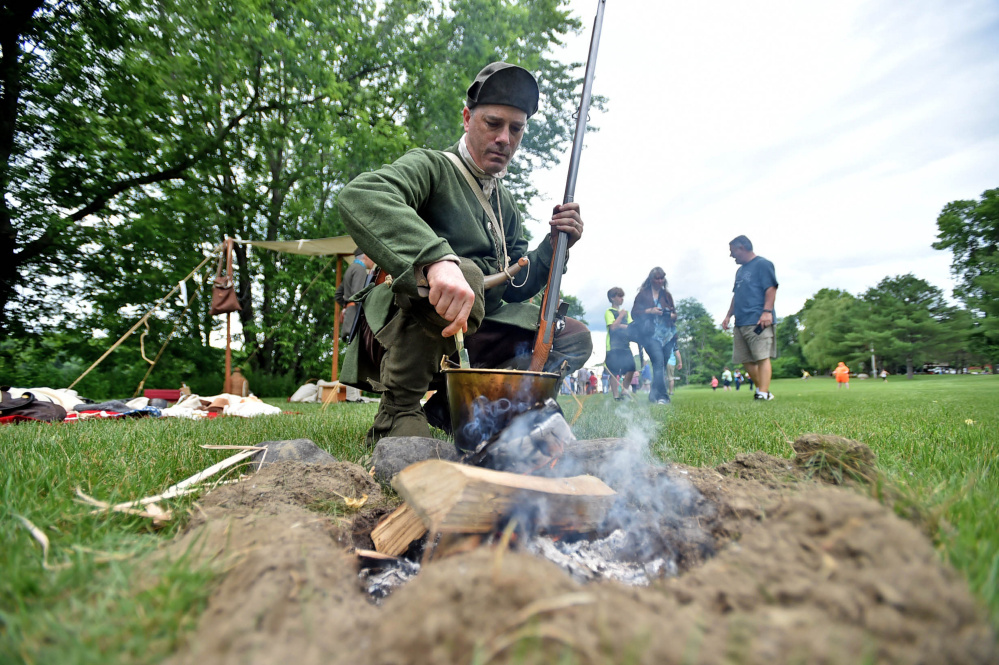
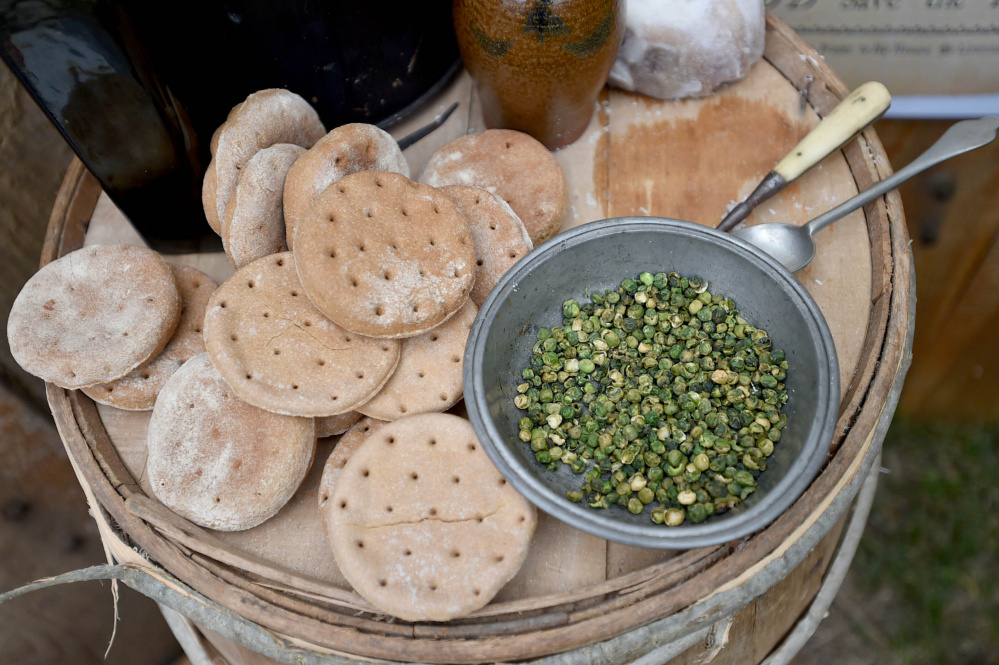
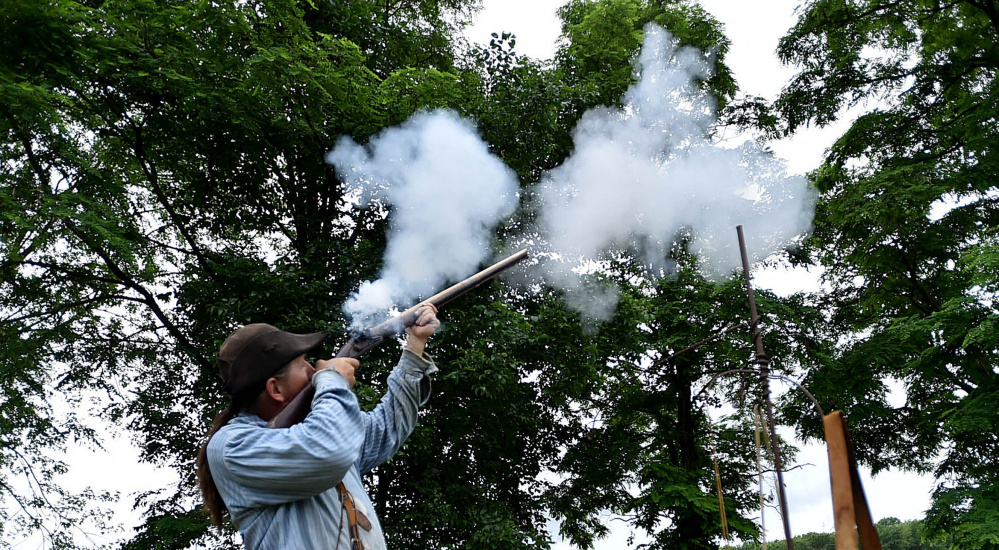
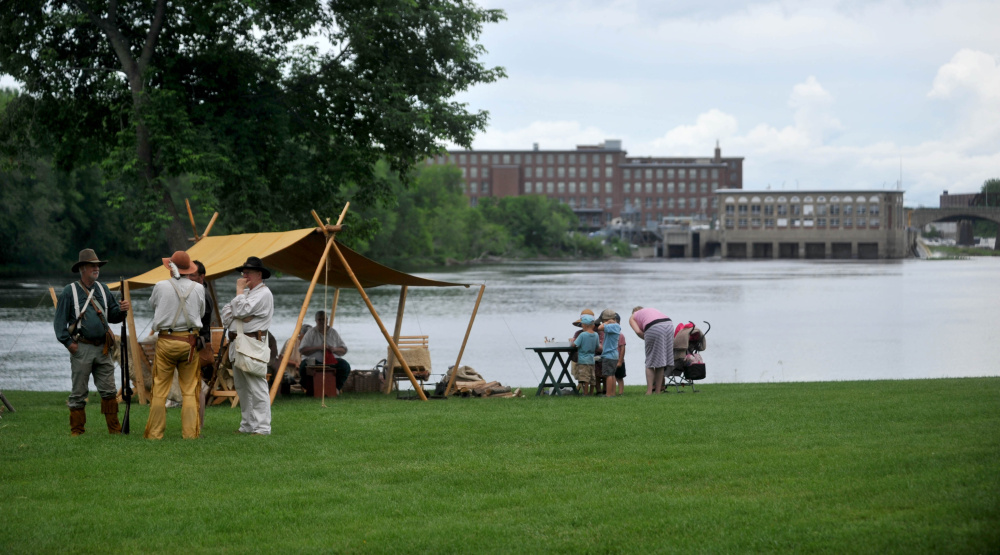
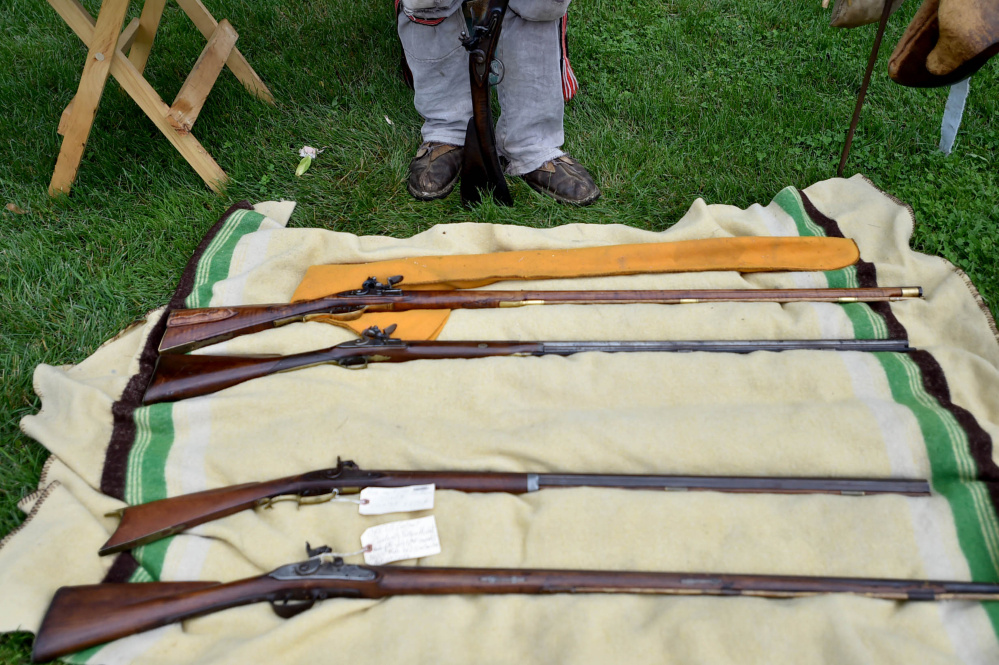

Success. Please wait for the page to reload. If the page does not reload within 5 seconds, please refresh the page.
Enter your email and password to access comments.
Hi, to comment on stories you must . This profile is in addition to your subscription and website login.
Already have a commenting profile? .
Invalid username/password.
Please check your email to confirm and complete your registration.
Only subscribers are eligible to post comments. Please subscribe or login first for digital access. Here’s why.
Use the form below to reset your password. When you've submitted your account email, we will send an email with a reset code.